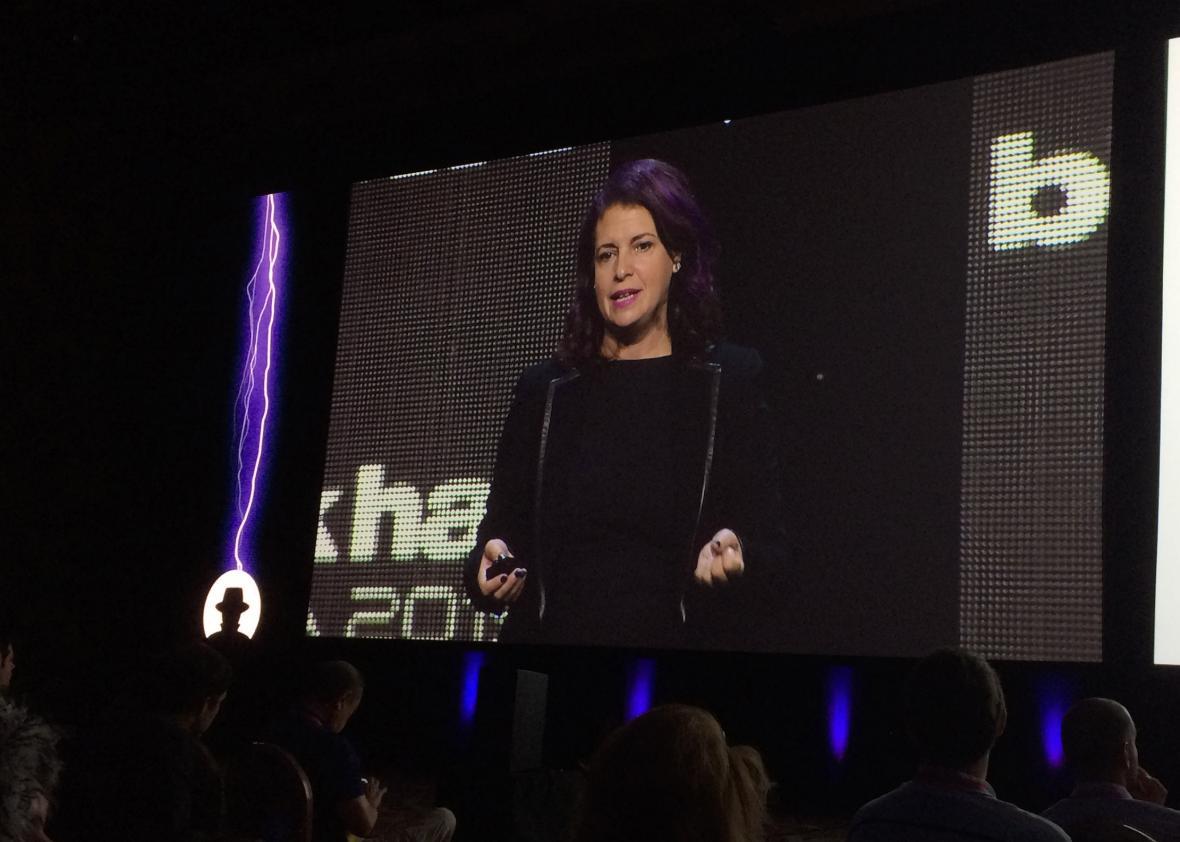LAS VEGAS—At the Black Hat cybersecurity conference on Wednesday, keynote speaker Jennifer Granick had a depressing refrain: “This dream of Internet freedom is dying.” Granick is the director of civil liberties at the Stanford Center for Internet and Society and a defense lawyer often referred to as “the first person that hackers call” when they’re in trouble. And at Black Hat, she was trying to share a reality check with a room full of cybersecurity professionals.
Granick supports a decentralized Internet and wants to protect hackers’ “freedom to tinker.” Given that most mainstream digital products use proprietary code, she fears that opaque services could strip users of the ability to influence crucial moments in their own lives. For example, an algorithm might decide whether people should get bank loans, or whether an autonomous vehicle will take a safe left turn or a hard right into a brick wall. “There’s software in everything, and if we’re not allowed to study that we’re just going to be surrounded by black boxes that we can’t understand,” Granick said. “Algorithms are going to be making these life-or-death decisions about us, and we’re not going to be able to understand them.”
Granick also talked about how early utopian visions for the Internet imagined a level playing field for communication and information sharing. But prejudices related to race, gender, religion, and other differences have proven resilient. She suggested that the cybersecurity field, which is known for being predominantly white and male, could “be a leader” in embracing inclusion, but the community would have to make tolerance a priority. (Even the founder of Black Hat Jeff Moss mused when he was introducing Granick, “Was I hitting on her? How did I meet her?”)
More generally, Granick identifies competing priorities as the big barrier to “radical freedom.” People may champion free speech and a right to privacy, but they also want the easy-to-use services that all their friends are using. “I don’t see people booing when Google says ‘OK, I’m going to take ISIS videos off of YouTube,’ ” she said. “We have to understand that these censorship decisions are inherently political … and the companies make decisions because they want to appeal to the majority of their users.”
If there are “democratic benefits and human rights benefits of providing security to everyone,” as Granick thinks there are, then it’s frustrating that providing centralized security to people creates choke points where privacy infringements, vulnerabilities, and regulations can spring up. “Security has tension with openness, but it’s also true … that if the network isn’t secure and safe, people aren’t going to use it,” Granick said. “What good is an open network that’s too dangerous to use? The idea should have been that people can choose security when it’s appropriate and choose openness at other times.”
And what happens if all efforts to protect free expression on the Web fail? Granick isn’t resigned to that doomsday scenario yet, but she does have a plan. Should the Internet become a closed medium like film or TV, “We need to get ready to smash it apart and make something new and better.”
